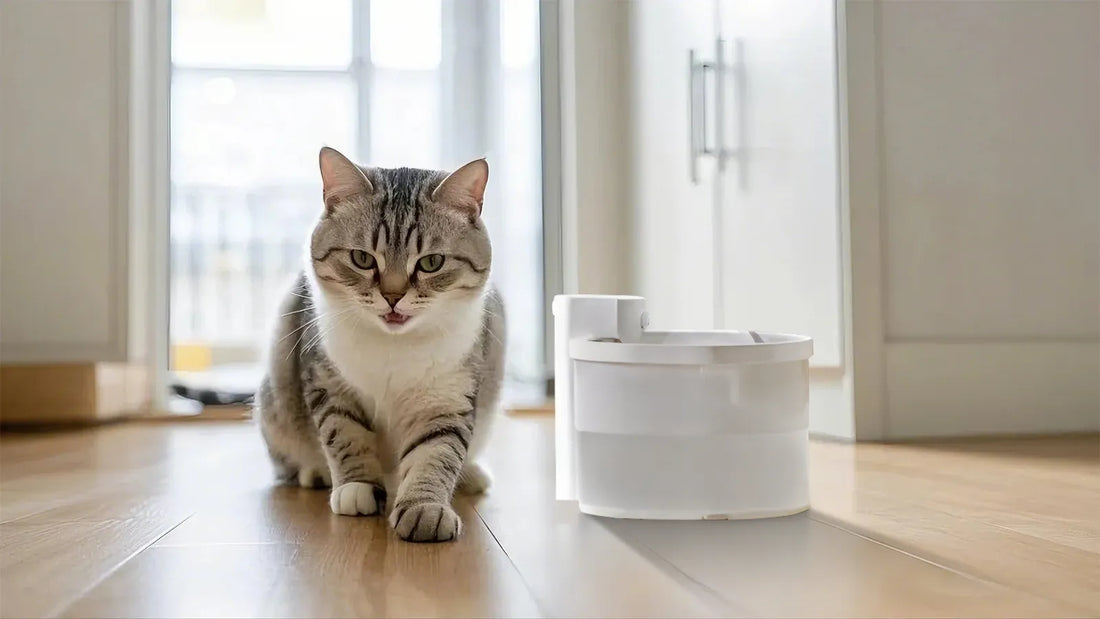If you're a cat owner, you know how frustrating it can be when your feline friend decides to poop outside the litter box. This behavior can be perplexing and concerning, but understanding the underlying causes can help you address the issue effectively. Let's dive into the possible reasons and explore practical solutions to keep your cat happy and your home clean.
Health Issues
One of the most common reasons a cat might poop outside the litter box is due to health problems. Conditions such as constipation, diarrhea, or even more serious issues like inflammatory bowel disease or parasites can cause discomfort, leading your cat to avoid the litter box. If your cat is experiencing pain while defecating, they might associate the litter box with discomfort and choose to go elsewhere.
It's essential to monitor your cat's behavior and look for signs of distress. If you notice any changes in their bowel movements, such as blood in the stool or unusual consistency, it's crucial to consult a veterinarian. Early detection and treatment of health issues can prevent further complications and help your cat return to their regular litter box habits.
Stress and Anxiety
Cats are sensitive creatures, and changes in their environment can lead to stress and anxiety, which might cause them to poop outside the litter box. Events such as moving to a new home, introducing a new pet, or even rearranging furniture can disrupt your cat's sense of security.
To help your cat cope with stress, try to maintain a consistent routine and provide a safe space where they can retreat. Using pheromone diffusers or calming sprays can also help reduce anxiety. If the stressor is unavoidable, such as a new baby or pet, gradually introduce the change and give your cat time to adjust.
Litter Box Preferences
Cats can be quite particular about their litter box preferences. Factors such as the type of litter, the size of the box, and its location can influence whether your cat uses it consistently. Some cats prefer unscented litter, while others might avoid a box that's too small or difficult to access.
Experiment with different types of litter and boxes to find what your cat prefers. Ensure the litter box is placed in a quiet, accessible location, and clean it regularly to maintain hygiene. Having multiple litter boxes in different areas of your home can also encourage consistent use.
Territorial Behavior
In multi-cat households, territorial disputes can lead to inappropriate elimination. Cats might poop outside the litter box to mark their territory, especially if they feel threatened by another cat. This behavior is more common in unneutered males but can occur in any cat.
To reduce territorial behavior, ensure each cat has their own litter box and resources. Providing separate feeding areas and plenty of vertical space, such as cat trees, can also help minimize conflicts. Neutering or spaying your cats can further reduce territorial marking.
Aging and Mobility Issues
As cats age, they may develop mobility issues that make it difficult to access the litter box. Arthritis, for example, can cause pain and stiffness, making it challenging for older cats to climb into a high-sided box or travel long distances to reach it.
Consider using a litter box with low sides or a ramp to make it easier for your senior cat to enter and exit. Placing the box in a convenient location and ensuring it's easily accessible can also help. Regular veterinary check-ups can help manage age-related conditions and keep your cat comfortable.
Behavioral Problems
Sometimes, cats develop behavioral issues that lead to inappropriate elimination. This can be due to past trauma, lack of proper litter box training, or even boredom. Cats that are left alone for long periods might act out by pooping outside the litter box.
Addressing behavioral problems requires patience and consistency. Reinforce positive behavior with treats and praise, and avoid punishing your cat, as this can increase stress and worsen the issue. Providing enrichment, such as toys and interactive play, can also help reduce boredom and prevent unwanted behaviors.
Environmental Factors
Environmental factors, such as a dirty litter box or a noisy location, can deter your cat from using it. Cats are naturally clean animals and might avoid a box that's not cleaned regularly. Additionally, a litter box placed near loud appliances or in a high-traffic area can be unappealing.
Maintain a clean litter box by scooping daily and changing the litter regularly. Choose a quiet, low-traffic location for the box to ensure your cat feels comfortable using it. If you have multiple cats, ensure each one has their own box to prevent overcrowding.
Understanding why your cat is pooping outside the litter box is the first step toward resolving the issue. By addressing health problems, reducing stress, and catering to your cat's preferences, you can encourage proper litter box use and maintain a harmonious home environment. Remember, patience and consistency are key, and consulting a veterinarian or behaviorist can provide additional support. With the right approach, you can help your cat feel comfortable and confident, ensuring they use the litter box as intended.













